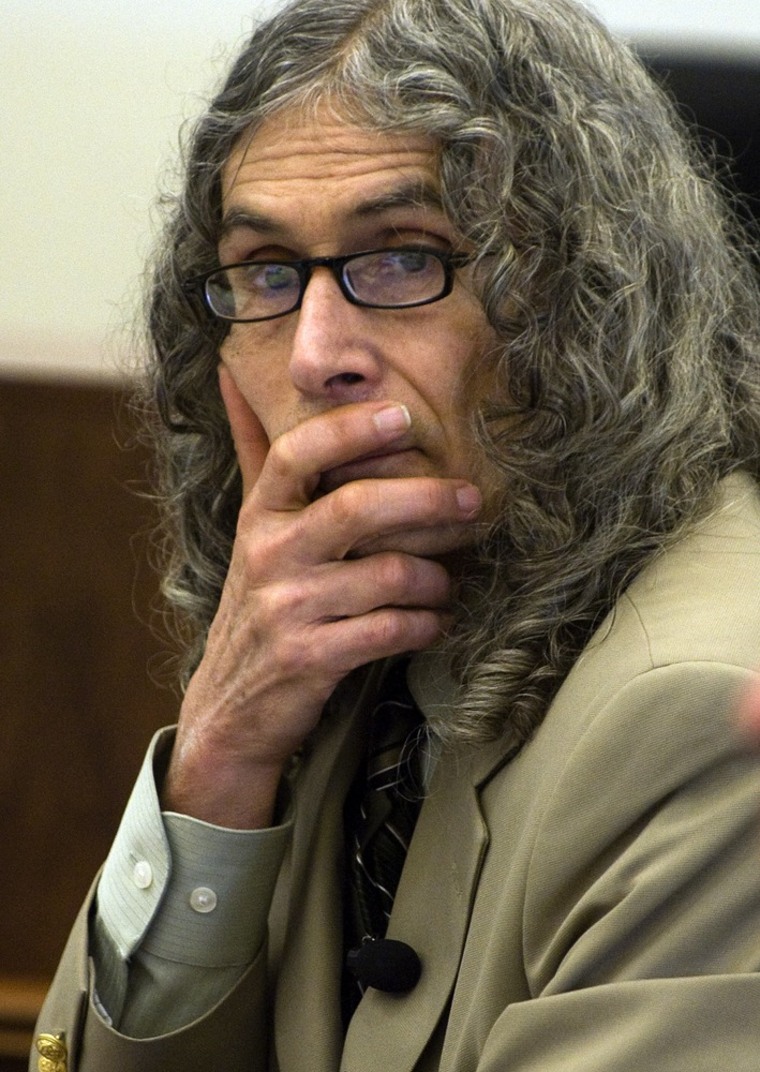Unveiling the Dark Truth: Rodney Alcala's Chilling Crimes and Captivating Legal Battles offers a deep dive into one of America's most infamous serial killers. Known as The Dating Game Killer, Rodney Alcala's story is both horrifying and intriguing, shedding light on how charm and manipulation can mask sinister intentions. Through his crimes and legal battles, we explore the complexities of criminal psychology and the justice system's response to such heinous acts.
Rodney Alcala's tale serves as a chilling reminder of the dangers lurking beneath seemingly ordinary facades. As a convicted serial killer sentenced to death for seven murders in California during the late 1970s, Alcala's life has been dissected by investigators, journalists, and true crime enthusiasts alike. This article delves into his background, modus operandi, and the unanswered questions that continue to haunt those seeking closure for his victims' families.
American Serial Killer Sentenced to Death
Rodney Alcala was an American serial killer and convicted sex offender who received the ultimate punishment—death—for his actions. Between 1977 and 1979, Alcala brutally murdered seven individuals, leaving behind a trail of devastation. His crimes were marked by extreme violence, including murder, torture, kidnapping, and rape. The gravity of his offenses earned him a place among some of history’s most notorious criminals.
Beyond the courtroom drama, Alcala's case highlighted the challenges faced by law enforcement when dealing with a cunning predator. Investigators had to piece together evidence from multiple jurisdictions while navigating public scrutiny and media attention. Despite these hurdles, they successfully brought Alcala to justice, albeit after years of investigation and trial proceedings.
His sentencing not only represented a victory for the justice system but also provided some semblance of peace for the loved ones of his victims. However, it raised broader questions about capital punishment and its role in modern society—a debate that continues to this day.
The Dating Game Killer Controversy
Nicknamed The Dating Game Killer due to his unexpected appearance on the popular television show in 1978, Rodney Alcala became synonymous with deception and betrayal. During the taping of the show, he charmed contestants and viewers alike with his smooth demeanor and polished persona. Little did anyone know at the time that this same man was engaged in a deadly killing spree across California.
This juxtaposition between his public image and private atrocities sparked widespread fascination and outrage. How could someone appear so normal yet harbor such darkness within? It wasn't until later investigations revealed patterns linking various unsolved cases to Alcala that authorities began piecing together the full extent of his crimes.
Furthermore, speculation persists regarding additional unidentified victims beyond the confirmed seven. Some believe the actual number could be significantly higher, raising concerns about other cold cases potentially connected to him. These uncertainties keep his legacy alive in the annals of criminal history.
Photography as a Tool for Manipulation
Rodney Alcala leveraged his passion for photography to lure unsuspecting victims into dangerous situations. By posing as a professional photographer, he gained access to young women and girls, exploiting their trust to commit horrific acts. Evidence collected during his arrest included countless photographs capturing intimate moments with potential targets—an unsettling reminder of his predatory nature.
This aspect of his methodology underscores the importance of understanding grooming techniques employed by predators. Alcala's ability to present himself as harmless and trustworthy allowed him to operate undetected for far too long. Law enforcement agencies now emphasize education and awareness campaigns aimed at preventing similar tragedies in the future.
Moreover, the discovery of photographic evidence played a crucial role in building the prosecution's case against him. Each image served as a testament to his calculated approach and reinforced the need for vigilance in identifying red flags exhibited by individuals displaying concerning behavior.
Death Row and Legacy
In July 2021, Rodney Alcala passed away on death row at the age of 77 due to natural causes. His passing marked the end of a chapter filled with tragedy and sorrow but left many unresolved issues surrounding his crimes. While authorities confirmed seven murders, theories abound suggesting there may be dozens more victims whose identities remain unknown.
As part of ongoing efforts to solve these mysteries, FBI records related to Alcala have been made available through initiatives like The Vault, offering transparency and encouraging public participation in solving cold cases. Such resources provide valuable insights into investigative processes and underscore the collaborative nature of modern forensic science.
Ultimately, Rodney Alcala's story serves as both a cautionary tale and a call to action. By studying his methods and motivations, society gains knowledge essential for protecting vulnerable populations and ensuring justice prevails even in the face of overwhelming evil.

